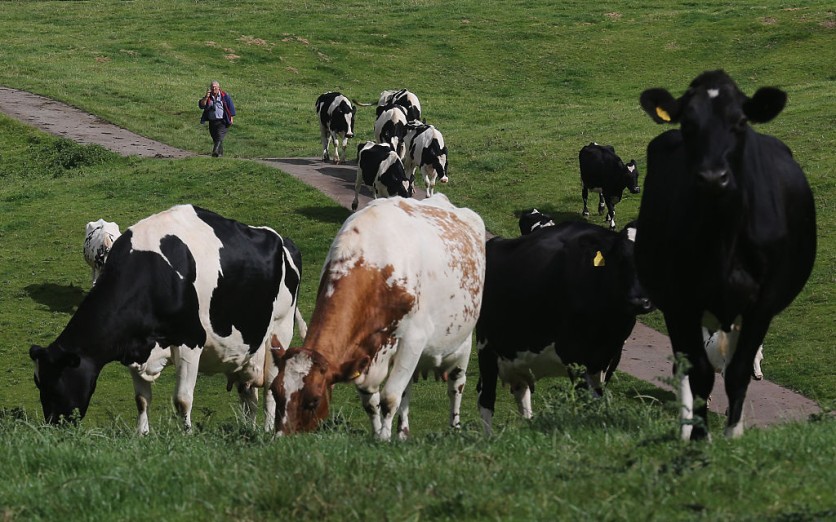A group of animal scientists from the University of Illinois Urbana-Champaign has successfully engineered a breed of cows that can produce up to 20 times more milk than conventional counterparts.
Genetically Engineered Cows for Higher Milk Production, Disease Resistance
These genetically engineered cows also have a higher level of tolerance for diseases and pests. The next phase of the project involves the transplantation of 100 of these newly developed embryos into indigenous cattle populations across two distinct regions in Tanzania, Interesting Engineering reported.
Cattle farming has been a longstanding focal point of environmental concerns and for a good reason. There are several aspects to consider when assessing the impact of cows on the environment and their contribution to climate change.

Scheduled for implementation in March, the researchers anticipate that these animals will manifest all the advantageous characteristics for which they have been genetically tailored.
The research team, under the leadership of Professor Matt Wheeler at the University of Illinois Urbana-Champaign, has a crucial goal in mind: to keep the disease and pest resistance linked together with the milk production in these genetically engineered cows.
The researchers want to ensure that as they breed these cows, the desirable traits they've developed remain interconnected. However, there's a challenge they acknowledge when it comes to developing countries.
In these regions, there is often a temptation to use local bulls for breeding, and this could lead to the separation of the advantageous traits they've worked on.
This challenge persists until they successfully achieve a fully synthetic generation of cows with these combined traits. This approach is vital for the sustainable development of more productive and resilient cattle for the benefit of agricultural communities in developing nations.
Although in its early stages, the ongoing project signifies a critical step towards enhancing the resilience of animal agriculture in the face of climate change and environmental challenges.
The genetic engineering technology employed has the potential for broader applications, not only within the United States but also on a global scale. In particular, Phys reported that the capacity to develop cattle that are better equipped to thrive in diverse and changing climates holds significant promise.
By introducing tropical traits into the genetic makeup of high-yielding American cattle, it becomes possible to bolster their resilience to conditions such as diseases, extreme heat, and periods of drought.
Read Also : Environmentally Friendly Farming: Farmers Utilize Selective Breeding to Reduce Methane Emissions in Cows
Extending Beyond Its Immediate Implementation
The significance of this research extends beyond its immediate implementation. According to a press release, this highlights the need for proactive consideration of how genetics and breeding practices can be harnessed to address the evolving demands of agriculture and food security.
Looking to regions such as Mexico, Texas, New Mexico, and California, where such climate-resilient cattle could find valuable applications, this initiative prompts us to contemplate the long-term benefits of integrating tropical genetics into our livestock to ensure future agricultural sustainability and adaptability in the face of environmental changes.
As the world grapples with the challenges of climate change and shifting weather patterns, innovations in animal genetics may indeed be a pivotal factor in ensuring food security and the health of livestock.

ⓒ 2026 TECHTIMES.com All rights reserved. Do not reproduce without permission.




